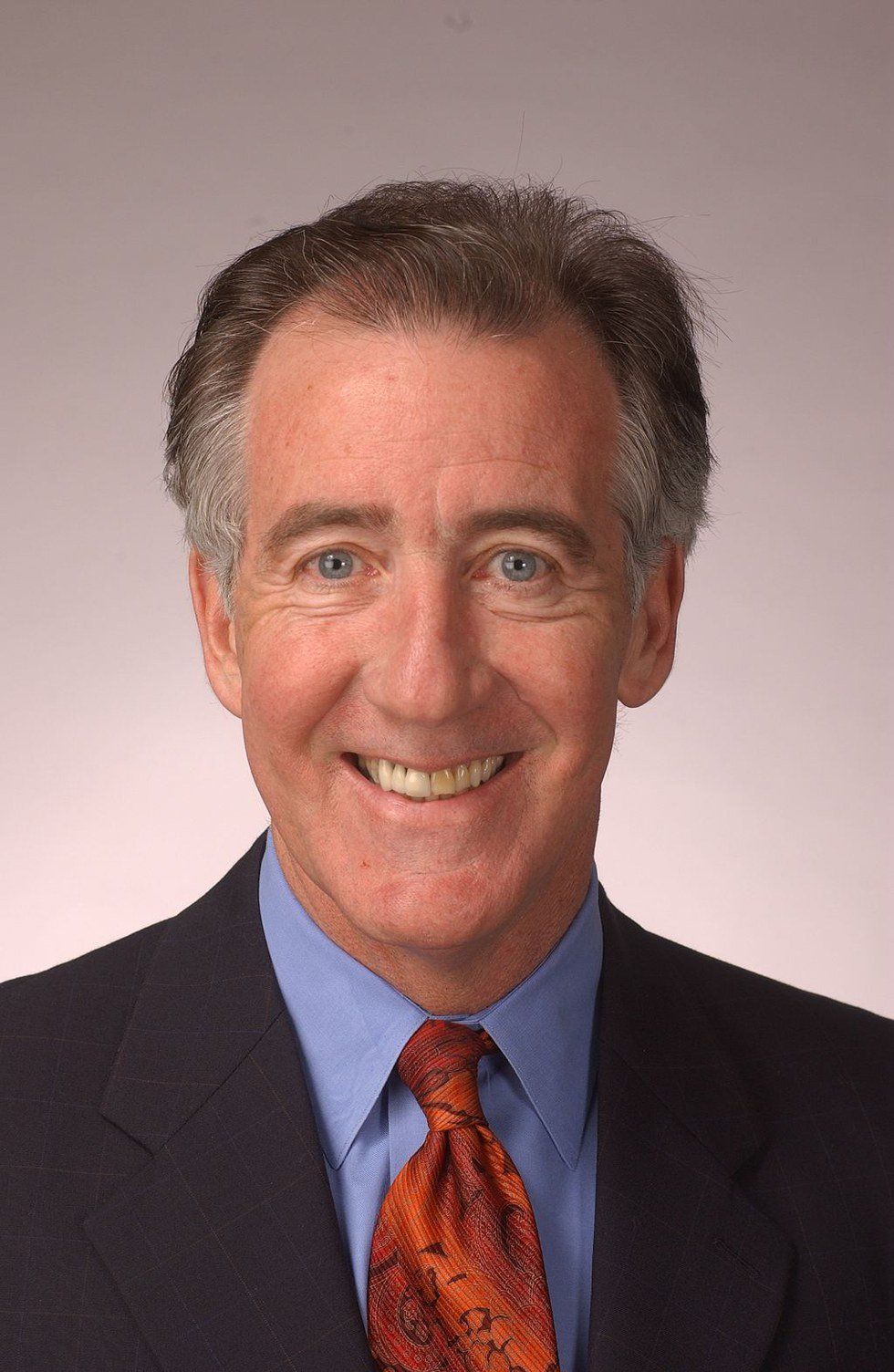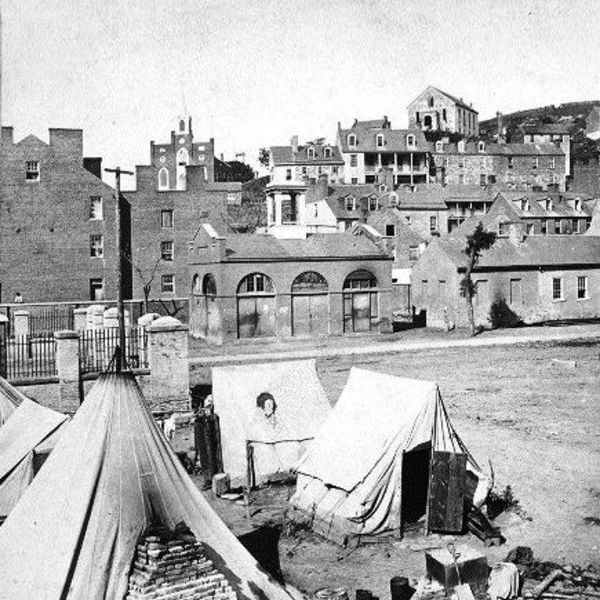This interview was conducted via phone in the fall of 2015, but the questions and responses remain relevant, and will be so for the foreseeable future.
The Representative: Richard Neal has served Massachusetts in Congress since 1989, in the second and then first congressional districts. Born in Worcester, he has a bachelor's in Political Science from American International College. He is the longest serving member of Congress from the Massachusetts delegation. A Democrat, Neal sits on the Ways and Means Committee.
The interviewer: Jordan Deschenes is a graduate of the University of Massachusetts and received a bachelor's degree in Journalism. He credits the Arab Spring and The Daily Show for getting him involved in writing and reporting.
Odyssey: What actions have you taken in Congress or causes have you championed to improve the lives of college students and recent graduates in your district?
Rep. Richard Neal: Well, I’m very mindful of what the costs are of college education and I’ve been very supportive of legislation that would ameliorate some of the rising costs for college students. But not to miss the point: it’s a much more complicated topic than just legislation. I served on the Mt. Holyoke Board of Trustees for 10 years and I’ve been here as a lecturer at UMass for a long period of time and I know that there are very few easy solutions to the cost of colleges, largely due to the fact that new building, cost of competition amongst the colleges across the country, and the desire of colleges to put the best face on. Their facilities have also contributed to driving the cost of college.
Odyssey: Increases in college tuition have been outpacing inflation for a few decades, and now the amount of student loan debt has surpassed the credit card debt held by all Americans. What specifically can Congress do to rein in these costs, if anything?
Rep. Neal: Well, it’s estimated there are more than $12 trillion of student debt that exists across the country and not to miss the point that we’ve also tried to extend Pell grants to students who need them.... And I think one of the dangers has been that students who might want to go out and create and innovate – they’ve really had to move back into their parents’ attic in an effort to help pay their school loans. So I think that there ought to be some opportunities there because you can no longer work your way through college.
Odyssey: Do you think that there could be help with apprenticeships or just a different way of learning?
Rep. Neal: I think that internships, apprenticeships, they’re all good, but I also think that Teach for America, opportunities like that for some students to have their debts forgiven if they were to undertake certain disciplines. I think that’s something we can take a look at.
Odyssey Beyond these, which three political issues affecting 18 to 30-year-olds aren’t being talked about enough?
Rep. Neal: Well, I think obviously, most substantial is the lack of real economic growth, I mean you’ve now had 12 years of downward pressure on wages, you’ve had students come out of college with enormous debt, but the economy has not been growing. And, you cannot address the large number of students entering the workforce every year at two percent quarterly growth. You need at least 300 to 400,000 jobs a month to pick up the economy, where at the moment, that number has been closer to 200,000. The difficulty there is that typically, the 200,000, that only replaces the people who have left the workforce, in terms of retirement or sickness.
Odyssey: Congress has a notoriously low approval rating among Americans, regardless of the party in control. Why is the branch that’s supposed to represent the people thought of so poorly by them?
Rep. Neal: Well, it’s a consistent number throughout American history, incidentally – I think it’s been lower in recent years, but also, the public now knows more about the deliberations of Congress. I think that there have been a number of missteps: closing down the government – I think that presidents have been battling with Congress – but also, there much more intense scrutiny from the media, with what it is Congress does. I think that the real number to measure here is not the collective feel that the public has for Congress, but contrast that with retention rate and election time, which is still north of 85 percent.
Odyssey: So, should people be paying more attention to who they’re electing?
Rep. Neal: Well, I also think that Congress has been a whipping board for presidents and the press, for a long period of time, but the public, they tend to like their own congressmen.
Odyssey: Well, by “own,” there’s also some gerrymandering in some states.
Rep. Neal: Well, there’s a lot of it that takes place. It’s an issue because of the fact that it makes members of Congress only appeal to people who agree with them. Representative democracy ought to mean that you have to appeal to people from time to time who disagree with you.
Odyssey: What’s one specific policy issue on which you’ve bucked your party’s position?
Rep. Neal: Well, I think I’ve taken positions against the line-item veto, term-limits, balanced-budget amendments to the Constitution to fight the leadership under research and development credit, technical but accurate financing under Subpart F of foreign-sourced income. So there are a number of things that I have bucked the party on. In most instances, I think I know more about it than the leadership does.
Odyssey: Do you want to talk a little more on the foreign-sourced income, just what you’re opposed to?
Rep. Neal: Well, I think that there is what is known as a Subpart F, which allows companies to keep profits offshore. My argument has always been that we need to change the tax codes so we can bring those profits back, but until we do the tax code, they cannot be put in a position where they “unfairly” compete. I have opposed companies moving offshore to avoid American taxes. And at the same time, I think one of the reasons that they move offshore is because of the high nature of the American corporate tax rate. And at the same time, I still think that because of the way that multi-national corporations interact today, having locations all over the world, that we want that money to come back. And of that, it’s a question of how we get it back. So that’s the technical aspect of it.
Odyssey: So you’re opposed to the Trans-Pacific Partnership?
Rep. Neal: I was opposed to the TPP, but I have not been against all trade deals. I’ve supported many of the bi-laterals and I think that the textbook analysis of trade works, but the reality of it is: it doesn’t always work.
Odyssey: In your current position, which vote do you most regret making and why?
Rep. Neal: I’ll save that for my memoir.
Odyssey: [Massachusetts congressman Jim] McGovern said that he chose to authorize war in Afghanistan, but not in Iraq, just to give you an example.
Rep. Neal: No, no…I cast the same votes, but I think that you can qualify that by saying, “Had the focus been on Afghanistan, there would have been a better outcome,” rather than Afghanistan and Iraq.
Odyssey: Since 1965, who was the best president not named Ronald Reagan and why? [The question was asked this way to remove the most likely choices for the Democratic congressman. Republicans Odyssey interviewed were asked the same question, excepting Ronald Reagan.]
Rep. Neal: Well, Lyndon Johnson’s clearly the most accomplished. There’s really no doubt about that, in terms of legislation enacting, Civil Rights Act, the Voting Rights Act, Medicare, Medicaid, Fair Housing; that’s a pretty extraordinary achievement that took place in five years.
Odyssey: Which interest group or lobby has the most undue influence on Capitol Hill, and why?
Rep. Neal: Well, it’s hard to say, because the Constitution says you have to petition your government. I don’t know that it’s the particular lobbying group. I think the Citizens United Supreme Court decision has fundamentally changed the way campaigns are run and I think that’s had an undue influence.
Odyssey: Super pacs?
Rep. Neal: Well, that would be spin-off of the Citizens United decision, now it’s just a free for all.
Odyssey: And the keyword is undue influence, so some might say that the NRA does because the popular support is for gun control. Well, maybe not in Congress.
Rep. Neal: It’s more complex than that and I accept the fact that the NRA is not going to support me, so they don’t bother with me, so I can’t give you a legitimate response as to whether they have influence, they just don’t bother with me.
I think it’s Citizens United and campaign money more than anything else rather than a specific industry.
Odyssey: The gap between the rich and poor continues to get bigger and is on many people’s minds What statistical indicators do you use to analyze this, and what is your solution?
Rep. Neal: There is a solution, a series of solutions, but not to miss the point that we cannot be simply construed about an argument that the poor get poor because the rich get rich, I think that the outcome of the recession has really been (inaudible) the digital divide, the technological advances that have been made which made for greater efficiency through the use of technology rather than having to hire people. Another cruel aspect of the recession is that as employers got used to hiring fewer people to accomplish the same end – you’re not going back and hiring more people. So I think the wage gap is from skill set, I think it’s globalization, and I also think that it’s technology.
Odyssey: What do you mean a diversified skill set?
Rep. Neal: There are now 16,000 precision manufacturing jobs in New England and it’s estimated that by the year 2020, there could be 25,000 precision manufacturing jobs in New England. And I think that there are a lot of students coming out of our schools, particularly those who have accepted a terminal education – ending in high school and a little bit of community college that need to upgrade skills so that they are available for very good jobs. There are a lot of companies that do very well with apprenticeship programs.
Odyssey: What does the word “equality” mean to you and how do we achieve it as a country?
Rep. Neal: Well, equality in my judgment, it’s about opportunity and I think that the game plan is to always get people to the starting line knowing you can’t guarantee the order in which they’re gonna finish. So I think equality means a chance, an opportunity.
Odyssey: Finally, if you could have a drink with any non-politician dead or alive, who would it be and what would you drink?
Rep. Neal: You’d be hard pressed not to say [Franklin] Roosevelt or Lincoln, they were the presidents that presided over America’s most difficult moments, the Civil War, the Great Depression, and World War II. And Roosevelt was a martini drinker, and I have a weakness for gin.





















